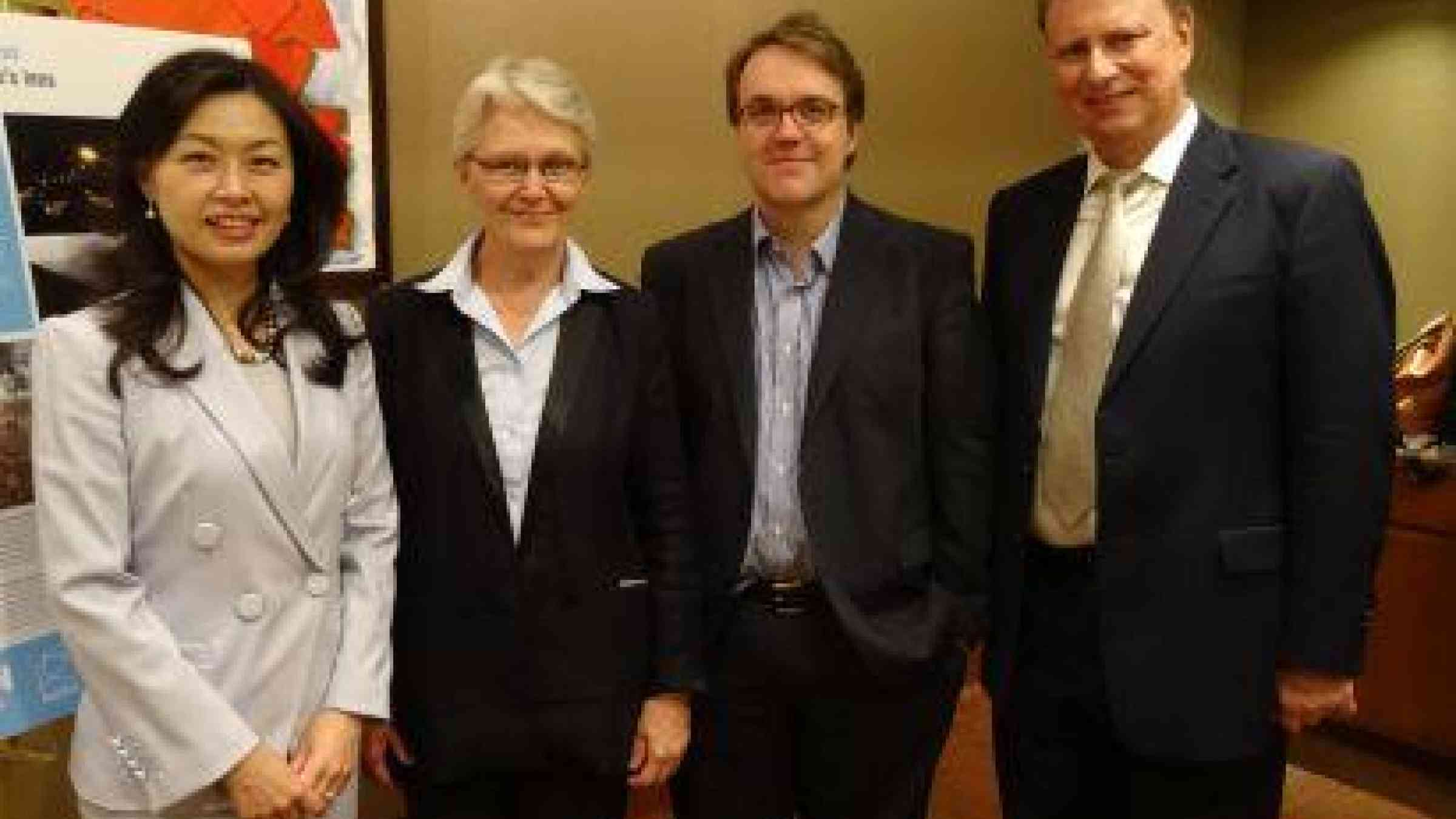Fresh call for resilient private sector

NEW YORK, 27 September 2015 – The UN Office for Disaster Risk Reduction and its existing private sector partners have called on businesses around the globe to join a new initiative that aims to raise resilience in the face of natural and man-made hazards.
“ARISE: the Private Sector Alliance for Disaster Resilient Societies” is set to be launched formally at its debut annual general meeting in London in November, but its interim board gathered in New York on the sidelines of the UN summit of world leaders which has just adopted the Sustainable Development Goals (SDGs).
“We need a better linkage and better coherence between the SDGs, climate change and disaster risk reduction,” Ms. Sandra Wu, co-chair of ARISE and chair of UNISDR’s Private Sector Advisory Group, said at a meeting with businesses. “We cannot just work alone on disaster risk reduction, on climate change, on SDGs, we have to all work together to find a solution, to tackle all these three agendas.”
“As a chair of ARISE, I would like to invite you or your friends, your colleagues or your company to come together, to join us, and also catalyze more sectors to work together on the coherence of this risk agenda,” added Ms. Wu, Chairperson and Chief Executive Officer of Japan-based Kokusai Kogyo Co., Ltd.
The 17 interlocking Sustainable Development Goals aim by 2030 to eradicate extreme poverty, promote prosperity and people’s well-being, while protecting the environment. They align with the aims of the 15-year Sendai Framework for Disaster Risk Reduction, which was adopted by the international community in March this year, and have also fed into the negotiations ahead of UN’s COP21 climate conference in December in in Paris.
The Sendai Framework sets out targets including a substantial reduction in mortality, in the numbers of people affected by disasters, damage to critical infrastructure, and economic losses – which are forecast to increase from US$260 billion in 2015 to US$414 billion by 2030.
“We cannot achieve sustainable goals if we’re destroying hundreds of billions of dollars of assets every year. And a lot of these assets are private assets, they’re business assets. And if they’re not your assets and property, they’re the assets of your suppliers, of your customers and distribution chains, of your employees, and the communities that you depend on,” said ARISE interim board member Mr. Aris Papadopoulos, former chief executive of Titan America and founder of the Resilience Action Fund.
“If you want to try to influence the future, which will involve a lot of changes in the way we do business, regulation, lending, the way we invest, this is your opportunity,” he told the business audience.
ARISE folds together and consolidates two UNISDR programmes: the Private Sector Partnership, which has been the main advocacy group to drive solutions for resilience and disaster risk-sensitive investment, and the R!SE initiative, which was mainly oriented towards projects on making investment more resilient.
The private sector played a key role in helping to craft the Sendai Framework, noted Ms. Margareta Wahlström, the head of the UN Office for Disaster Risk Reduction (UNISDR) and co-chair of the ARISE interim board.
“Governments of course must take responsibility but they can’t do it alone. They need everyone else,” she said. “You are one of the instruments for resilience.”
She noted that the Sendai Framework highlights the lack of regulation and incentives for private disaster risk reduction investments as an underlying risk driver, and calls for business to integrate disaster risk reduction into their management practices.
It also states that addressing underlying disaster risk factors through disaster risk-informed public and private investments is more cost effective than any reliance on post-disaster response and recovery and contributes to sustainable development.